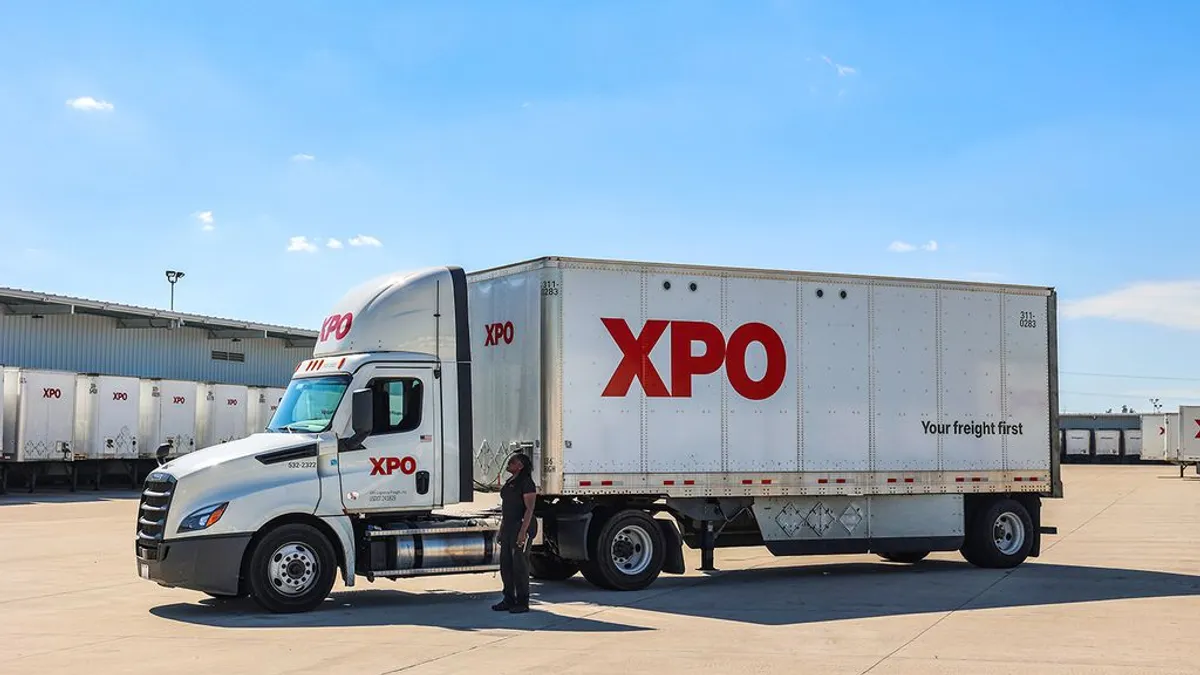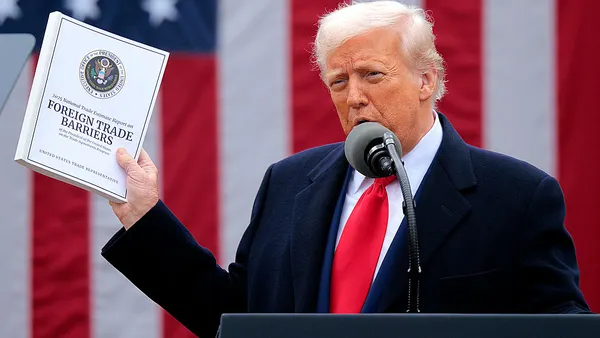This is an opinion piece by Eric R. Byer, president and CEO of the National Association of Chemical Distributors. Views do not necessarily reflect those of Transport Dive.
Chemical distributors and countless other U.S. industries are all too aware our infrastructure is crumbling and desperately needs to be fixed.
For too many years, administration after administration has held out the promise of a major infrastructure package that would spur economic growth while helping nearly every industry sector more safely and efficiently move goods throughout the supply chain.
President Joe Biden unveiled the first part of his American Jobs Plan, an infrastructure proposal that covers a wide range of projects. It would invest in areas traditionally considered infrastructure, such as transportation infrastructure of all types (roads, bridges, ports, etc.), water services, electricity transmission, broadband and infrastructure resilience.
But the Biden blueprint also includes other proposals that significantly push the limits of what can be defined as "infrastructure," including affordable housing, home-based care for the elderly and disabled, electric vehicles, workforce development, research infrastructure, and more.
While we understand the desire for a sweeping bill, the importance of implementing common-sense transportation infrastructure improvements that promote U.S. competitiveness in our global marketplace cannot be overstated.
The most conservative of analyses, counting investments fitting the broadest definition of infrastructure, found that just under $750 billion – or roughly 40% – of Biden’s plan consists of infrastructure, making this bill so overreaching that it may not even make it through the Democrat-held Congress.
Congress should help keep trucking strong
This year has been challenging for supply chains. Logistics providers, shippers and other stakeholders have faced shortages of shipping containers, chassis and rail stock; shipping delays in our nation’s busiest ports; severe shortages of interstate truck drivers; and legacy anti-competitive rail practices — all threatening to grind our supply chain to a halt.
These issues are, in large part, a symptom of the lack of investment in our infrastructure. And they’re particularly challenging for chemical distribution, which is highly specialized, highly regulated and moves goods in a just-in-time environment. Distributors depend on a mix of trucking, cargo ships and rail to deliver products.
A strong trucking industry — which moves more than 70% of all freight in the U.S. — is key to keeping the U.S. competitive. And it requires healthy infrastructure that can help keep trucks on the road.
The current employment environment for truck drivers is reaching a critical point in which companies can no longer find qualified drivers to take the place of retirees. Legislation that would expand the pool of eligible drivers has been kicked down the road almost as long as an infrastructure package.
Enhanced infrastructure that keeps traffic flowing, allowing truck drivers to deliver more products more quickly and having more time at home, should help encourage current drivers to remain on the road and help attract a new generation to the industry.
Furthermore, while everyone agrees we need to fix our infrastructure (despite differing opinions on core priorities), few agree on how to pay for it. The Biden administration proposes a significant increase of the corporate tax rate from 21% to 28%.
Increasing the corporate tax rate on trucking companies and shippers that already pay one-third of the Federal Highway Trust Fund through these taxes may be going a step too far.
A strong trucking industry — which moves more than 70% of all freight in the U.S. — is key to keeping the U.S. competitive.

This infrastructure package would be funded on the backs of companies already contributing significantly to our nation’s traditional infrastructure through a myriad of fees, including the diesel fuel tax, the heavy vehicle use tax, a tire tax, and a federal excise tax paid at the purchase of every truck or trailer.
We join industries across America in urging our lawmakers to fix the transportation issues that can be dealt with in the near term. They must work across the aisle to address adequately our infrastructure challenges, so that we are able to advance realistic and workable solutions to these pressing problems. But they must fund these improvements in a way that fairly evens the financial burden.
We know that getting this right will put us all on better economic footing as businesses small and large embark on the hard work of recovering from the economic impacts of COVID-19
To submit an opinion piece for publication on the Transport Dive website, please visit https://www.transportdive.com/opinion/submit-opinion/ and view our guidelines and submission form.










